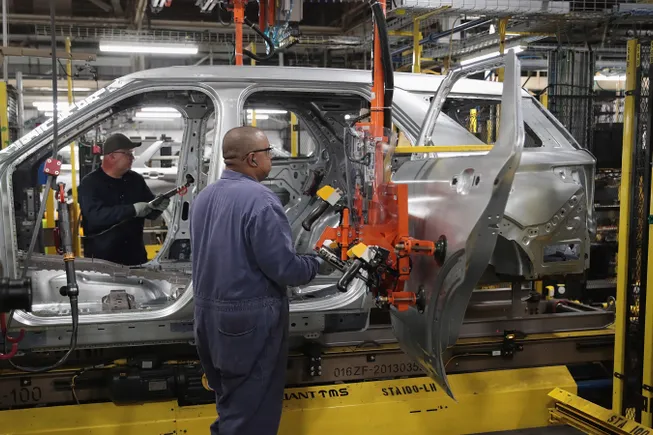Dive Brief:
- The Department of Labor has issued formal principles to guide employers as they introduce artificial intelligence platforms into their workplaces. The guidelines, released Oct. 16, are an extension of the Biden administration’s 2023 executive order on AI. “Whether AI in the workplace creates harm for workers and deepens inequality or supports workers and unleashes expansive opportunity depends (in large part) on the decisions we make,” Acting Labor Secretary Julie Su wrote in her introduction.
- The principles are designed to encourage support for collective bargaining rights, transparency in the use of AI, and workers’ data privacy, while seeking to provide employer support for those whose jobs are displaced by the technology.
- The Partnership on AI, a coalition of tech companies and nonprofit organizations that includes Google, Microsoft and the American Civil Liberties Union, commended the recommendations. “Together, we are working to ensure that the benefits of AI are broadly shared so we have a future of work that works for all of us,” the partnership’s CEO, Rebecca Finlay, said in the department’s press release.
Dive Insight:
The agency said its document is not meant as an “exhaustive list” but a framework for businesses, and that “employers should review and customize the best practices based on their own context and with input from workers.”
The Labor effort builds on the labor aspects of the broader Biden administration effort to outline AI policy in the current absence of federal legislation. Several states – notably California and Colorado – have enacted laws regulating AI.
The administration’s October 2023 Executive Order said that AI technology “should not be deployed in ways that undermine rights, worsen job quality, encourage undue worker surveillance, lessen market competition, introduce new health and safety risks, or cause harmful labor-force disruptions.”
While AI may revolutionize some dull or repetitive worker tasks, this automation is likely to cause a demand for new skills and training as employees migrate to new and different work roles and for those overseeing AI work. It may also thrust some workers into unemployment.
Further, AI-augmented work, according to the department “poses risks if workers no longer have autonomy and direction over their work or their job quality declines.”
The technology could also “embed” bias and discrimination into decision-making or make “consequential workplace decisions without transparency, human oversight, and review,” the Labor Department said.
A report last year from the U.S. Chamber of Commerce’s AI Commission also called for measured federal regulation of the technology. “A failure to regulate AI will harm the economy, potentially diminish individual rights and constrain the development and introduction of beneficial technologies,” the report said.
The Chamber did not immediately respond to a request Monday for comment on the Labor Department’s AI framework.
The eight principles articulated in the document aim to:
- Center worker empowerment
- Develop AI ethically
- Establish AI governance and human oversight
- Ensure transparency in AI use
- Protect labor/employment rights
- Use AI to enable workers
- Support workers impacted by AI
- Ensure responsible use of worker data
“Incorporating worker perspectives is an important part of the AI principles, part of our company approach, and a key component of our partnership with AFL-CIO,” Amy Pannoni, Microsoft’s deputy general counsel, said in the department’s press release.
President Joe Biden first nominated Su, a former labor lawyer from Los Angeles, for the permanent Labor role in February 2023, but the full Senate has not voted because Democrats lack the votes needed to confirm her. Earlier this year, Biden renominated Su.




Leave a Reply